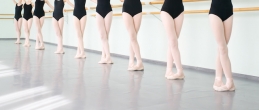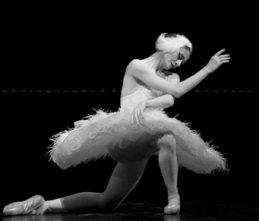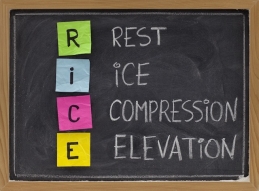Blog
Surviving Dance Auditions in Germany

Surviving Dance Auditions in Germany - A Dancers passport to the world of auditioning in a foreign tongue! - Common Class Vocabulary in a foreign language.
We are lucky as dancers that our basic ballet instruction is in the universal language of French no matter where we are in the world. All you need to then do is attune yourself to the Accent and you will hear it clearly, then add a few key words from that language and you can take a class or audition anywhere in the world!
[read more]Why do I have to take Ballet? By Laura Di Orio

A dancer is like building a house from the ground up. You can’t start by adding the roof and interior decorations; rather, you must start by creating a solid foundation to support the structure and make it last. Similarly, a dancer must establish that foundation in technique before adding all the “tricks” and performance quality. And that foundation, according to many dance teachers and professionals in the field, is ballet.
“Because ballet has been constantly evolving for over 400 years, it has arrived at a very solid method of developing human movement potential for the stage,” says Stephen Pier, director of the Dance Division at The Hartt School of the University of Hartford, located in Connecticut.
“It’s still the most relevant technical training all around and can serve as a very effective way of organizing and developing the facility of the dancer. Most other techniques or styles have not been around that long. They are too limited to be the sole basis of training, and they haven’t worked out the science and art of dancing to the depth that ballet has.”
“Ballet is the ‘grandmother’ of them all in the Western world,” Pier says. “This system has evolved over centuries and has survived and absorbed every fad imaginable. It has great wisdom and logic imbedded in it, which every dancer should learn about. It’s not important whether or not you think you will become a ballet dancer. It is very important, however, that you become educated about your art and respect all of its various practices and practitioners
[read more]Shad Martin: Why I don’t pay for Dance anymore…

The other night someone asked me "Why do you pay so much money for your girls to dance?"
Well I have a confession to make, I don't pay for dance. Personally, I couldn't care less about dance. I grew up in a family of 4 boys and no girls. The "Nutcracker" was something you did on a dare off of the high dive at the pool or something you unpleasantly surprised your brother with. Up until the day I met my wife if I were asked to go to Swan Lake I would have asked if we were water skiing or fishing.
[read more]
Turnout Insight for Dancers, Dance Teachers, and Dance Parents By Jennifer Denys

Turnout is every dancers dream but some bodies will be injured in their quest for more turnout. Read Canada's National Ballet School's physiotherapist Jennifer Denys series of tips "helping to demystify what turnout is and how you can approach the passionate pursuit of “more turnout” without getting injured along the way. "
Motor skills

Certain Motor skills will not be achieved until children reach a certain age, regardless of years of dancing! Postural control and balance are the foundations for success in almost all movement in dance, and it is essential to focus on these aspects of training in the early years. Teachers’ effectiveness and dancers’ skills can be enhanced through a sound knowledge of motor development. Locomotor skills follow a particular developmental pattern: walking, running, jumping, galloping, hopping, and skipping. These skills must be presented in order, and at the right age.
[read more]3 Mindset Changes You Must Adopt to Succeed in Dance

Through dance we learn a lot about ourselves and how to use our bodies. We learn to express ourselves physically where we’ve failed to do so with words and this helps us become stronger people, physically and mentally.
[read more]Benefits of Dance

A number of studies have shown that people who dance are less likely to be depressed and report higher levels of emotional well-being.
[read more]Competitions: Good or Bad? with Clare Morehen

Thank you Clare Morehan for your valued opinion!
[read more]Teaching Your Child about Perseverance

“I always tell my kids if you lay down, people will step over you. But if you keep scrambling, if you keep going, someone will always, always give you a hand. Always. But you gotta keep dancing, you gotta keep your feet moving.” -- Morgan Freeman
Teaching your child how to persevere at a task is one of the most important life lessons they will learn...
[read more]5 Amazing Life Lessons that Ballet Teaches Children

If your child is enrolled in ballet lessons, you’re already well aware of the wonder, excitement, and physical benefits that dance brings to children.
But you’ll be even happier to know that by supporting your child’s exploration of dance, you are setting the stage for success in other areas of their life.
In fact, research has shown that dance teaches children important life skills. The skills that children learn at a young age are carried with them into adulthood – and the arts are particularly important in the formative years of their life.
Here are our favourite 5 life lessons that ballet teaches children:
[read more]R.I.C.E New research suggests Ice delays recovery from soft tissue injuries!

Dr Gabe Mirkin, the man who coined the phrase acronym R.I.C.E in the treatment of soft tissue injuries in 1978 has recanted this method in his article on 16 March 2014! In his article he states "Coaches have used my “RICE” guideline for decades, but now it appears that both Ice and complete Rest may delay healing, instead of helping...In a recent study, athletes were told to exercise so intensely that they developed severe muscle damage that caused extensive muscle soreness. Although cooling delayed swelling, it did not hasten recovery from this muscle damage" Click the link to read Dr Gabe Mirkin's full article.
[read more]